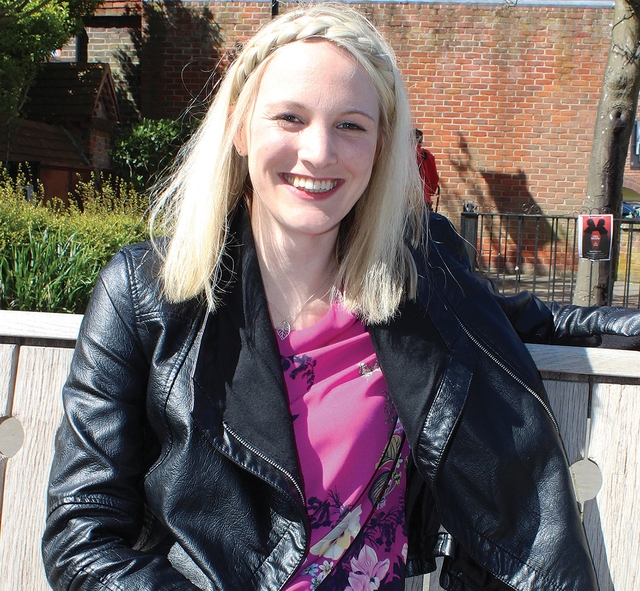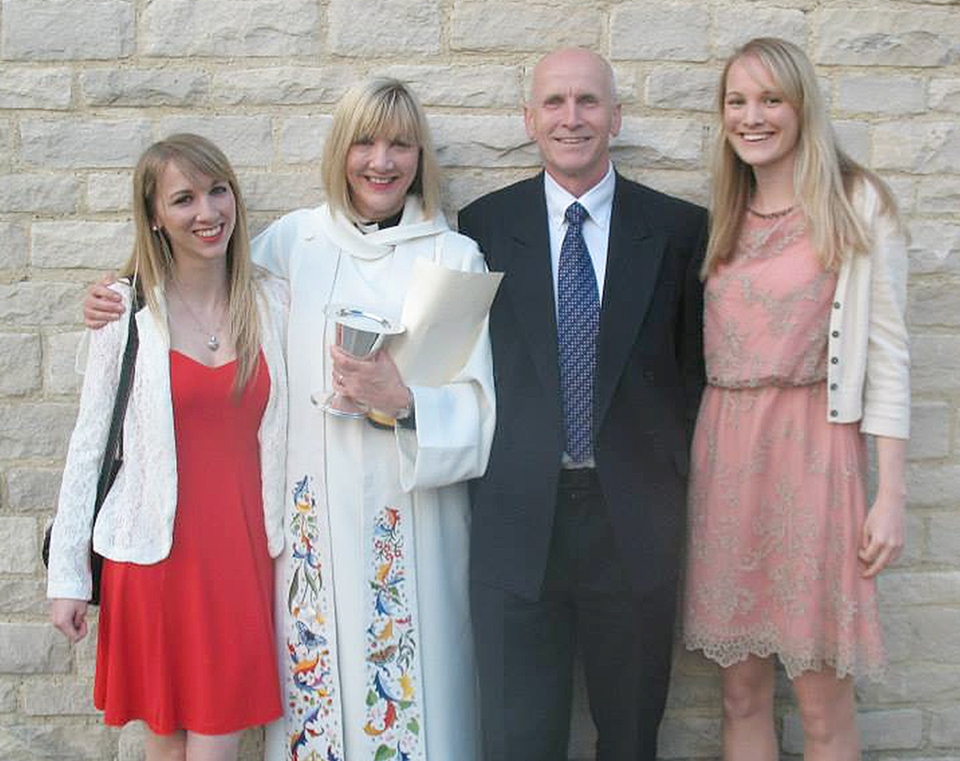God can use broken people like me as ministers

AT the age of 27, Sorrel Wood thought she had it all – a career in teaching, engaged to be married and achieving personal bests in rugby and athletics.
Within a few months, she’d injured her leg and was unable to walk properly for a year. And her engagement to her South African boyfriend ended. She was devastated that both her sporting and romantic interests had been cut short.
Yet God used that time in which Sorrel felt broken to build up her faith again. She learnt to depend more on God, and suddenly found the Eucharist compelling.
She went back to a sense of calling that she had been feeling for years. Now the 29-year-old teacher has been accepted for ordination in the Church of England, and will start her theological training this September.
“I think the idea of brokenness is central to our faith, and priests are walking symbols of the kind of flawed people who God wants to use,” she said. “It’s very humbling to think that God could use me, but I realised that I just had to respond to this sense of calling that felt unavoidable.”
Sorrel’s parents only became Christians when she was seven. Her dad Dave was also a keen sportsman and was part of Petersfield Rugby Club, where he responded to an invitation to join an Alpha Course.
He became a Christian and helped to lead Sorrel’s mum Alice to faith. Alice Wood, who was then headteacher at St Alban’s C of E Primary School in West Leigh, was ordained in 2012 and is now serving at St Matthew’s Church in Blackmoor.

Sorrel grew up at St Matthew’s, attending Sunday School and being involved with church life. As a teenager, she rebelled and went to a local charismatic free church. She studied English at Durham University, attending St Nicholas Church, and worked out what she really believed.
“St Nic’s had this thing about being firm on the things that matter, but fuzzy round the edges, which sort of sums up my faith, really,” she said. “I remember after I graduated, I was at church and saw a young female curate in a pink skirt. It was the first time that I saw a clergy person that I thought was actually like me.
“The thought came into my head that I could do this too. It is definitely true that you can’t be what you can’t see, and until that point, I had perceived these boundaries around ordination. So I thought God might be calling me for ordination, but then I sat on those feelings for seven years.”
She trained to be a teacher and taught in a school in Cambridge. She went travelling and lived in Cape Town for a while, worshipping at St George’s Cathedral, where Archbishop Desmond Tutu is based, and working in a children’s home.
“I was engaged to be married, but it didn’t work because of the cultural differences,” she said. “It just fell apart, and I was devastated. I’d also been very sporty, doing rugby at Cambridge and long-distance running. I’d just posted some personal best times, and it felt as though I was achieving the things I wanted to achieve. But in the space of a few months, the engagement and the sport had gone.
“I came back to my sense of calling, but even then I took it slowly. Normally I’m the kind of person who rushes around, but this felt different. If it really was from God, it would happen however long it took.”
Sorrel has been teaching English at the Royal School in Haslemere while exploring her calling. She has led assemblies and become part of the chaplaincy team there. She’s also been worshipping back at St Matthew’s in Blackmoor, where she was given opportunities to lead worship and preach, including leading a ‘secret church’ meeting which highlighted the plight of persecuted Christians around the world.
Sorrel was given some training on Fresh Expressions of church via our diocese’s Mission-Shaped Introduction course. She’s also been learning about pioneer ministry, as her vicar, the Rev Dom Clarke, is leading a team which will plant a church in the newly-regenerated town of Bordon, serving 10,000 new residents.
“My school has been very supportive about this sense of calling, and so have my non-Christian friends,” she said. “My uni friends have said some really spiritual things that I needed to hear. I’ve also been talking to Dom about this for a long time, and to my mum.
“My mum and I are very close, and she’s told me all about what to expect, so I’m definitely going into it with my eyes open. She has lent me loads of books, and I’ve helped her with sermons. I wonder if part of my resistance to this was that I didn’t want just to do the same thing as her.
“I’d never been someone who felt very sacramental about their faith – I was more of a New Wine kind of person. But I suddenly found the Eucharist irresistible. I was in a Lent group where we had a home Eucharist, and it was very powerful. I was drawn to the altar and wanted to be a server. I became very emotional about it.”
She went to see our former Diocesan Director of Ordinands, Canon Robin Coutts. As he was retiring, she ended up seeing our Assistant Diocesan Director of Ordinands, the Rev Amanda Bloor. She was also grateful to have the support of retired priest the Rev Ann Leonard as spiritual director.
They and others helped Sorrel to prepare for her recent Bishop’s Advisory Panel weekend, where candidates for ordination are interviewed about their calling. She was accepted for ordination and will start three years of training at Ripon College, Cuddesdon, near Oxford, later this year.
“It feels like I’ll be a second-generation female priest,” she said. “I’m second generation literally, in the sense that my mum is a vicar, but because women became priests when I was only seven years old, I’m the first generation to grow up with strong female role models in the clergy – like Amanda, Ann and my mum.
“For me that has been really significant, and now that women can also be bishops it feels like a really exciting time to be a young woman going into the Church – not that I think I’ll become a bishop!
“My sense of calling was on the back-burner for a long time. But I think it takes a lot of courage and confidence to take the risk and respond, which I only got by the end of my 20s. It’s also about obedience, and it’s a sacrifice, as there are a lot of ‘what ifs’. But in the end, you say ‘Yes, Lord, here I am’.”